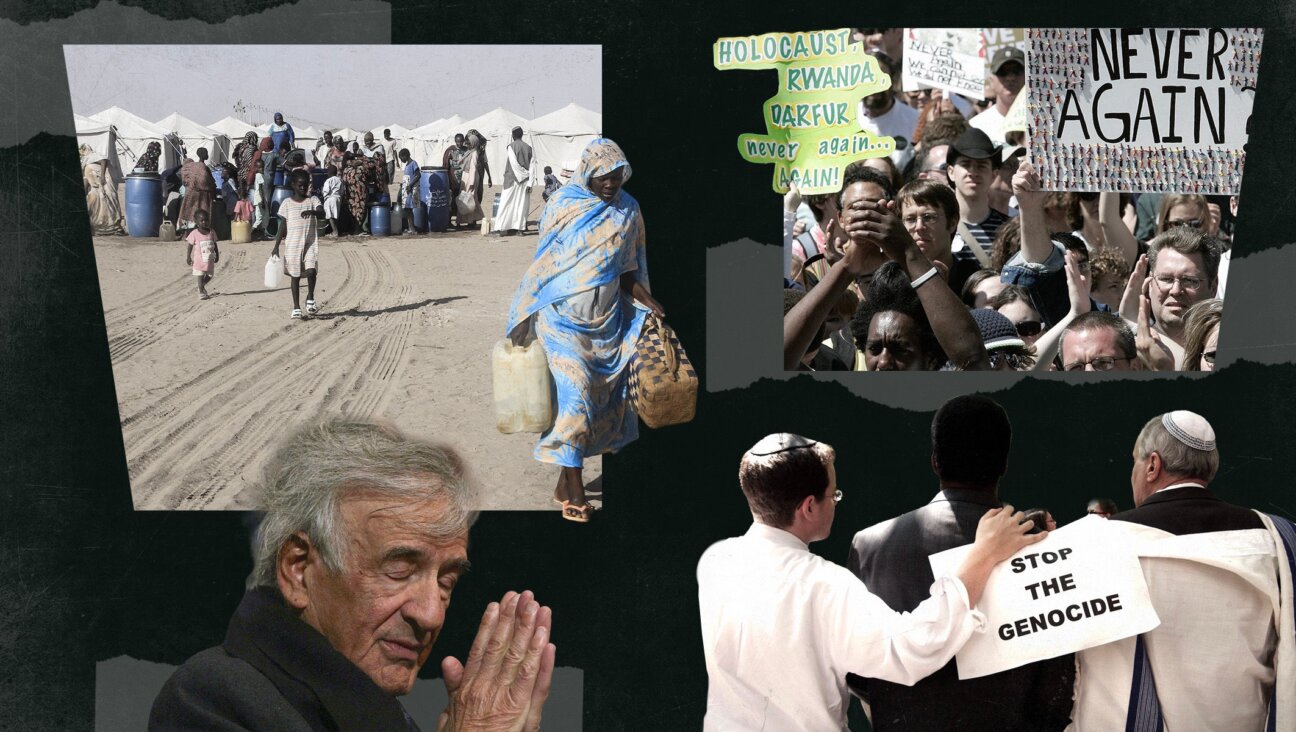Jews Put Spotlight on 1994 Terror Bombing at Iran-Argentina World Cup Match

Image by getty images
For many Jews, the World Cup match on June 21 between Argentina and Iran is far more than a soccer game.
It’s an opportunity to remind the world of a crime that, 20 years on, remains unresolved.
Eighty-five people died in the 1994 terror bombing of the Asociación Mutual Israelita Argentina, or AMIA, the main Jewish center in Buenos Aires.
Prosecutors have accused Iran of carrying out the attack through its proxy Hezbollah, but Argentinian authorities and police officials have delayed investigations and have failed to bring anyone to account.
The Tehran connection underlines the symbolism of the soccer match between the two nations.
Argentinian Maxi Klein’s cousin, 20-year-old Emiliano Gastón Brikman, was among the AMIA victims.
Klein will take a banner quoting Deuteronomy’s “Tzedek tzedek tirdof” (“Justice, justice you shall pursue”) to the Mineirão stadium in Belo Horizonte, where Argentina faces Iran in the second match for both teams.
“It’s important that the world sees that we’re asking for justice,” Klein said.
Since Brikman was also a huge soccer fan, Klein reckoned it would be the perfect time and place to pay homage to his cousin’s memory.
“And it means even more to me, personally,” Klein added.
“Watching the game can’t help but bring back painful memories for many of us,” Claudio Epelman, executive director of the Latin American Jewish Congress, told Time magazine.
On June 2, the Latin American chapter of the World Jewish Congress sent a letter to Sepp Blatter, president of FIFA, world soccer’s governing body, urging the organization to keep one minute’s silence to remember the victims of the AMIA attack before the Argentina vs. Iran match. FIFA has not yet responded.
Iran-watchers warn Jewish groups not to expect any shift in stance from the Islamic republic, especially at a time when it is focused on nuclear talks with the West and the sectarian bloodshed in neighboring Iraq.
“There’s no reason to expect an overt response from the government now,” Abbas Milani, director of Iranian Studies at Stanford, told Time.
















